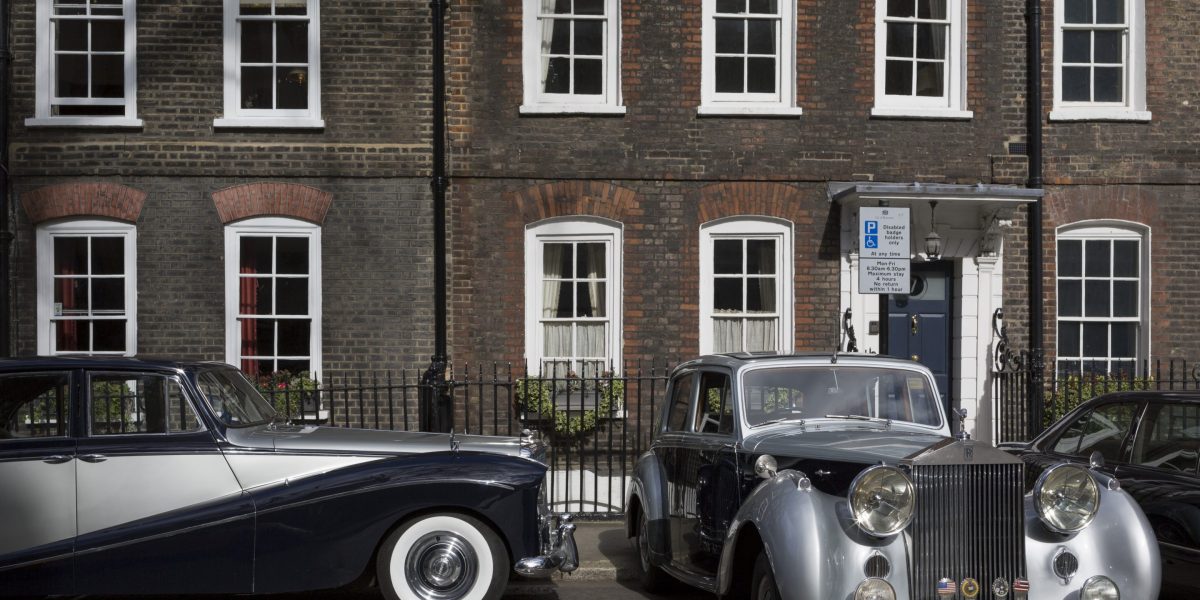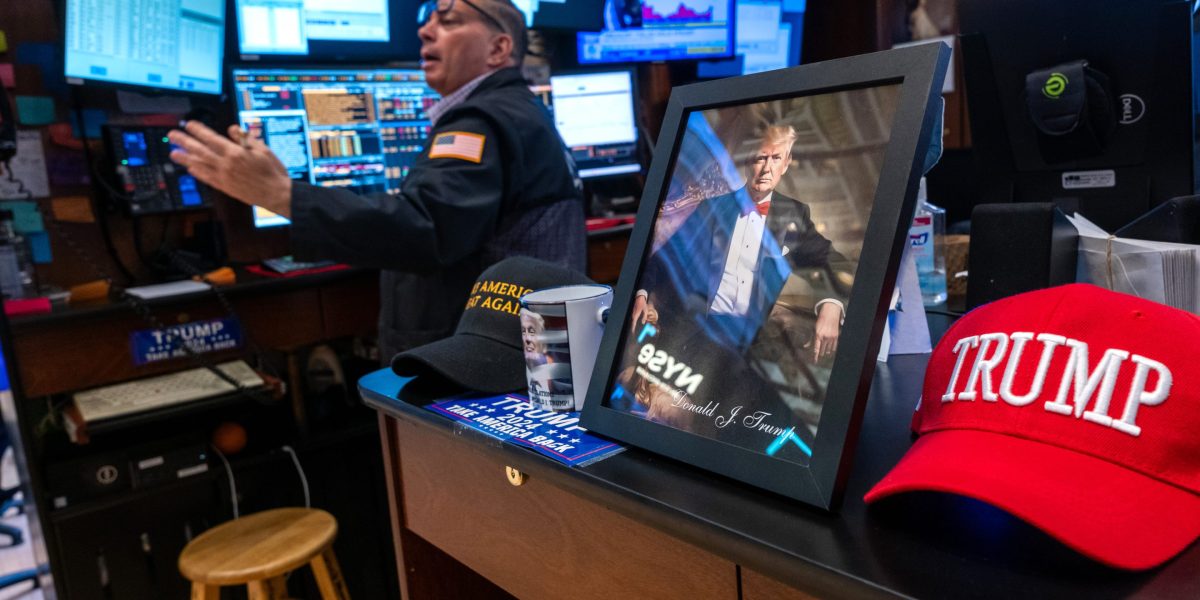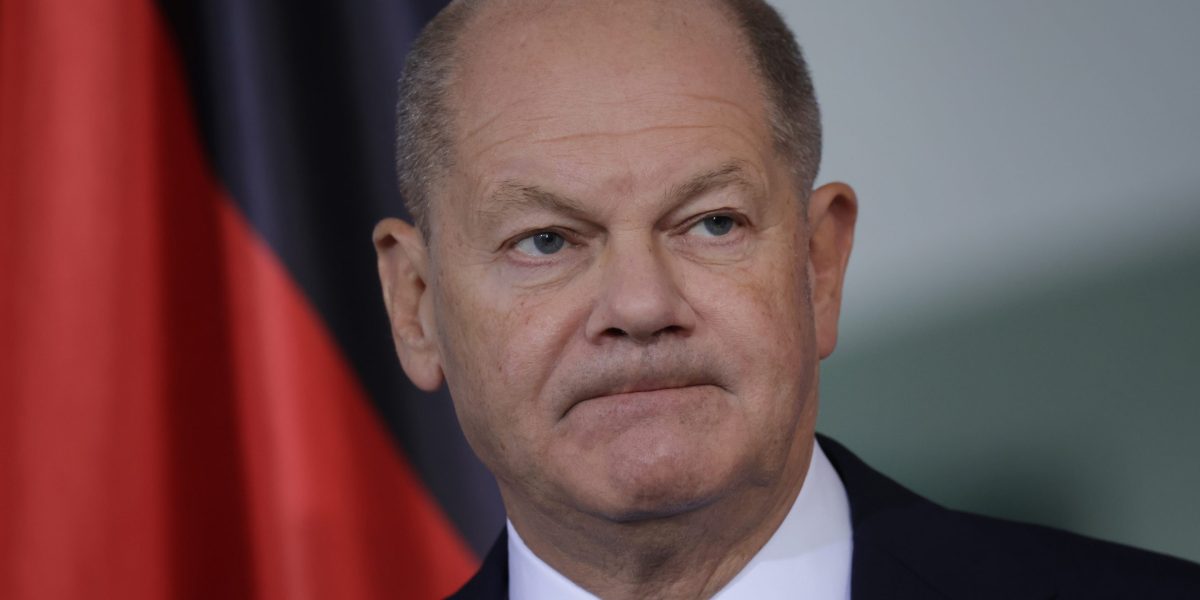The U.K.’s automobile sector, prized for its luxury manufacturers like Bentley and Aston Martin, is reeling after President Donald Trump moved forward with aggressive tariffs that threaten to bring the country’s lucrative export market to its knees.
The Trump administration slapped 25% import tariffs on cars and some car parts, including engines and powertrains, on Wednesday in a bid to repatriate manufacturing and convince foreign competitors to set up shop in the U.S.
It’s news that will send a shudder down the spines of the U.K.’s luxury manufacturers, who craft a handful of cars every year mostly intended for wealthy American buyers, including President Trump.
The car market is the jewel in the crown of the U.K.’s manufacturing industry, home to luxury carmaking giants including Bentley, Aston Martin, Rolls Royce, Lotus, McLaren, and Jaguar Land Rover all of which produce most of their cars in the country. Excluding JLR, their combined annual revenues exceed around £6.4 billion ($8.3 billion).
Four out of every five cars made in the U.K. are exported to other markets. Analysis from the Society of Motor Manufacturers and Traders (SMMT) found the entire autos market was the U.K.’s most valuable manufactured goods export in the 12 months to June last year, worth £46.8 billion ($60.5 billion).
The U.S. is by far the U.K.’s biggest single autos export market, receiving 17% of the country’s cars. Last year, the U.K. shipped £6.4 billion ($8.3 billion) worth of cars, with more in parts, to the U.S.
North America is also by far Jaguar Land Rover’s largest market. The region, which also includes Canada and Mexico, imported a combined 241,000 JLR vehicles in 2024. Shares in Tata Motors, which owns JLR, fell 5.5% in early trading.
In recent months, mass-market European automakers have outlined plans to circumvent Trump’s incoming tariffs. BMW has facilities in the U.S. prepared to pick up production demand for Americans. Stellantis has its fleet of U.S. brands, including Ram, Dodge, and Chrysler, that could offset falling demand in its European businesses. Volkswagen, which said it would be minimally affected by tariffs, has its large Tenessee plant to lean on for production.
There isn’t an obvious solution for the U.K.’s carmakers, however. Much of the appeal of its luxury cars, particularly to foreign buyers, lies in the legacy behind their production. Bentley, for example, has continuously made its cars at its Crewe plant since 1946.
Because of their much lower production levels, any decline in the output of luxury carmakers can have an outsized impact on profit margins.
Rolls-Royce, a carmaker that counts Trump as a customer, makes up just 0.02% of total cars sold by its parent, the BMW group. All Rolls-Royce cars are meticulously crafted at its Goodwood factory in Chichester. The company announced in January a £300 million investment in the factory to aid its expansion into customization.
Aston Martin, meanwhile, shipped less than 2,000 vehicles to the Americas last year but made $630 million in revenue from the region. Shares in the carmaker fell more than 5% in early morning trading.
The reality of the U.K.’s prestigious car market leaves it with few options other than passing costs onto its wealthy customers, hoping exclusivity will trump practicality. Bentley’s CEO, Frank-Steffen Walliser, said as much last week when he warned that added costs were likely to land on its wealthy buyers eventually.
The panic was clear from SMMT chief executive Mike Hawes, who on Thursday urged the U.K and U.S. to come to the table to avoid tariffs that would cause pain on both sides of the Atlantic.
“Today’s announcement by President Trump is not surprising but, nevertheless, disappointing if, as seems likely, additional tariffs are to apply to U.K. made cars,” said Hawes.
“The UK and US auto industries have a long-standing and productive relationship, with US consumers enjoying vehicles built in Britain by some iconic brands, while thousands of UK motorists buy cars made in America.”
This story was originally featured on Fortune.com
Source link


 Entertainment8 years ago
Entertainment8 years ago
 Politics8 years ago
Politics8 years ago
 Entertainment8 years ago
Entertainment8 years ago
 Entertainment8 years ago
Entertainment8 years ago
 Tech8 years ago
Tech8 years ago
 Tech8 years ago
Tech8 years ago
 Tech8 years ago
Tech8 years ago
 Politics8 years ago
Politics8 years ago






